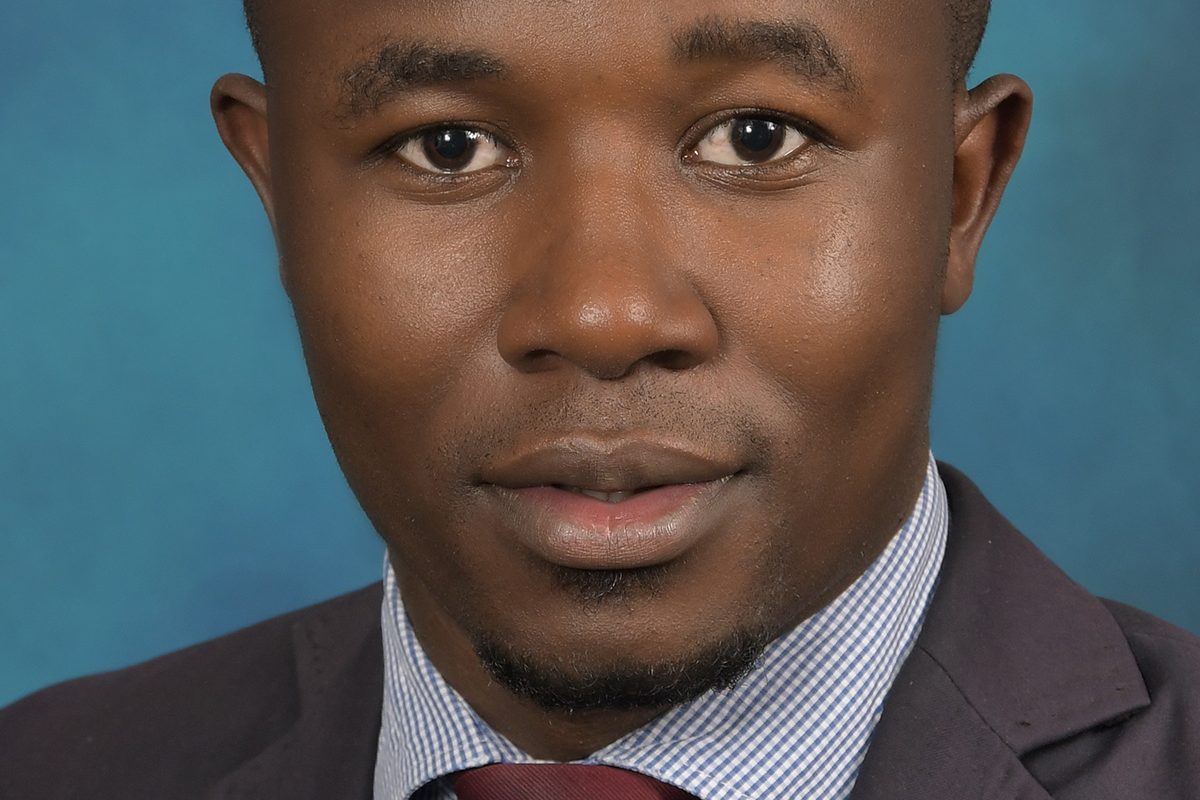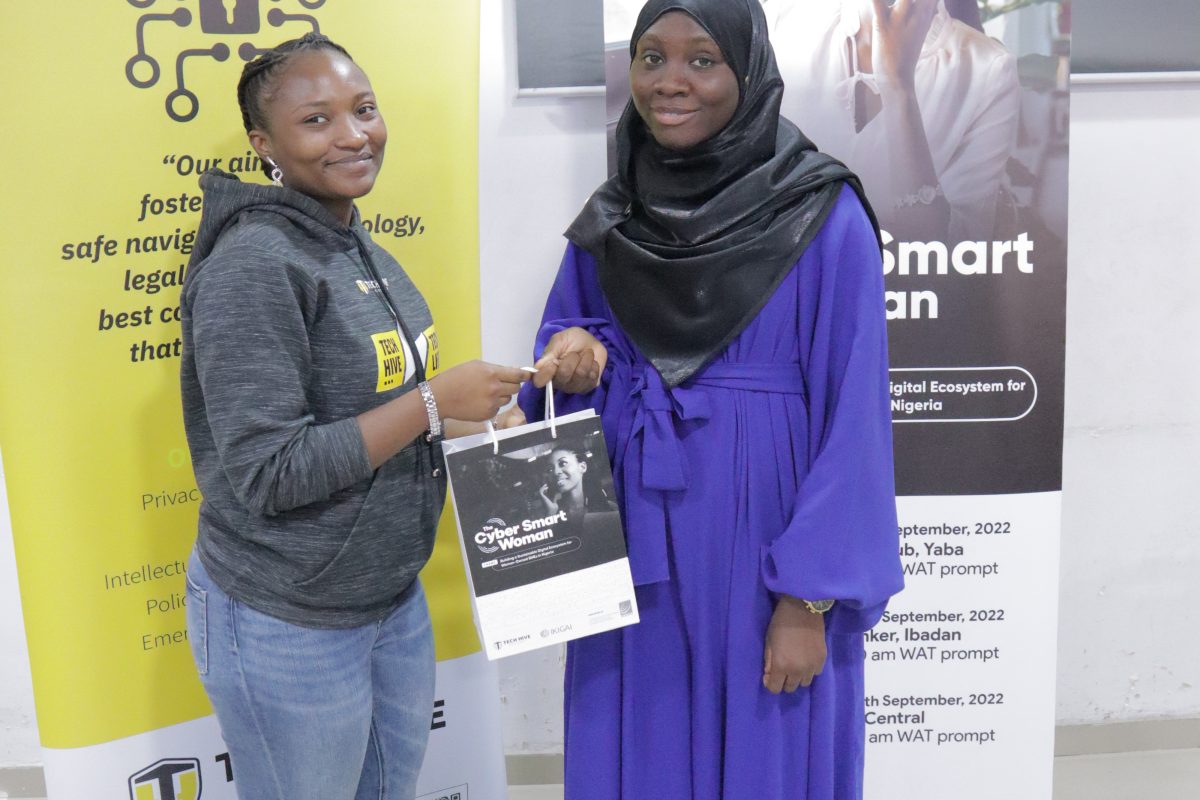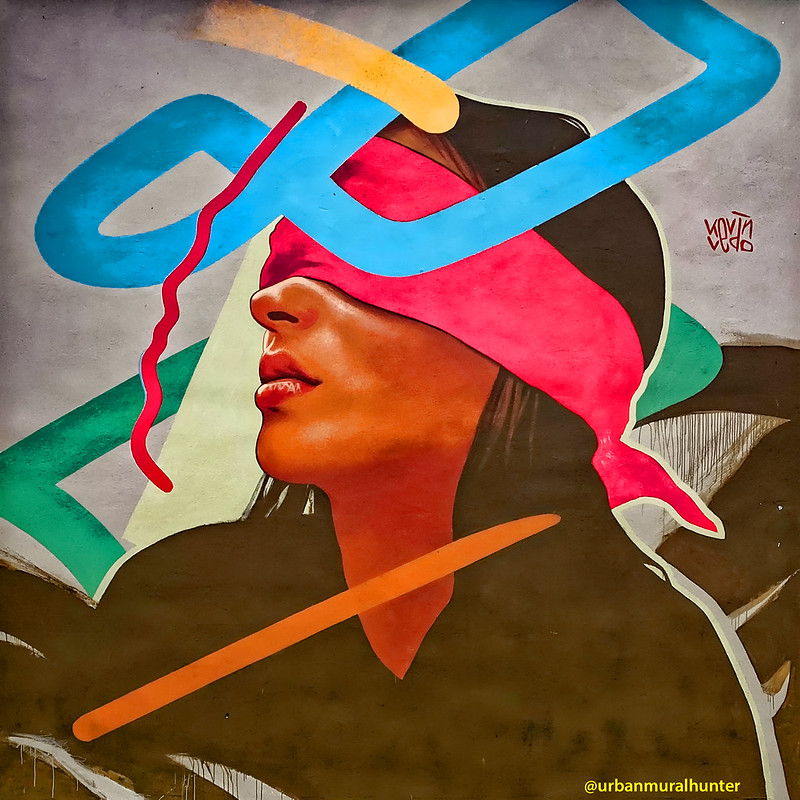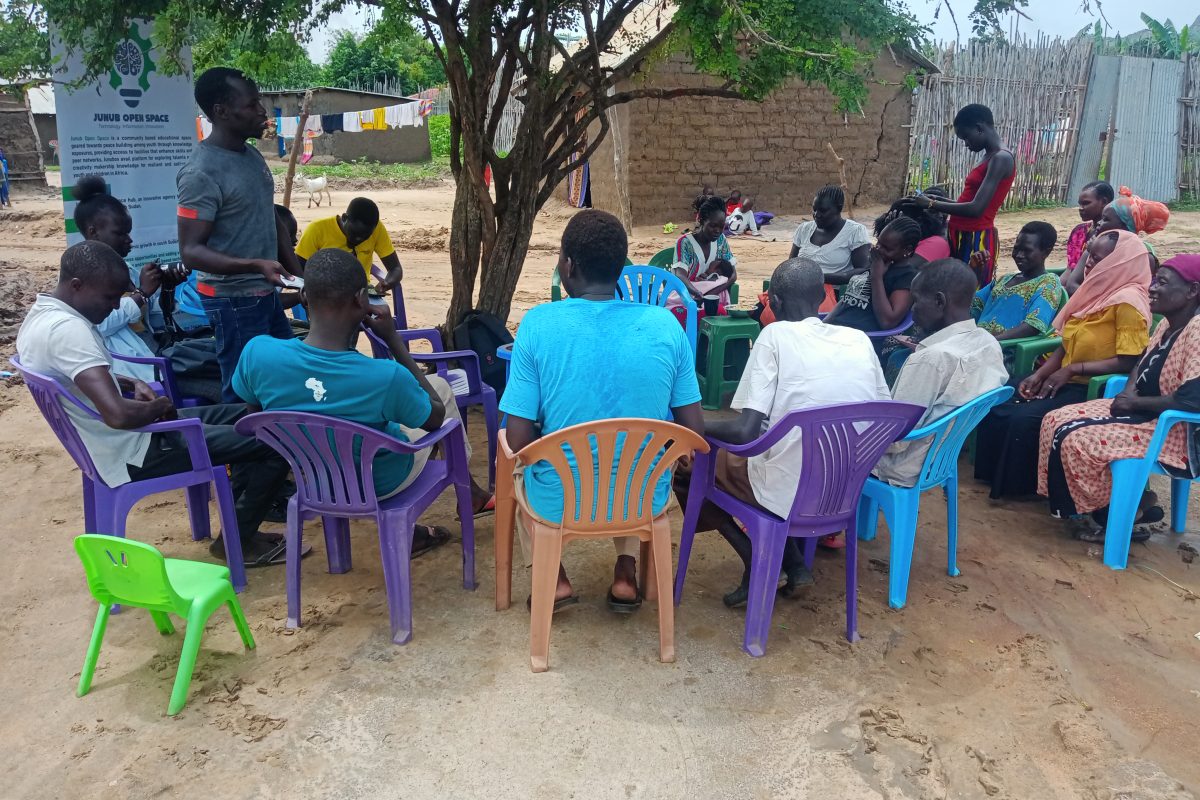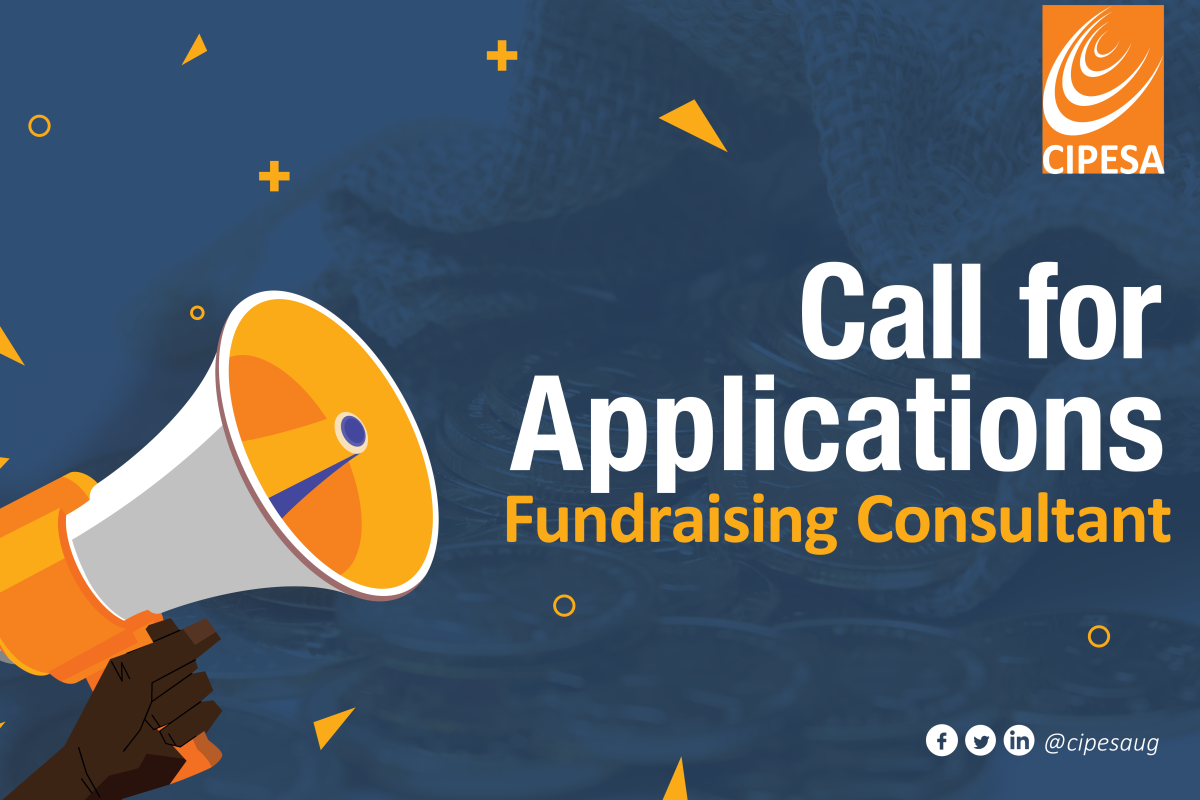Nelson Otieno Okeyo is a Kenyan litigation and compliance lawyer, academic and a legal researcher. He is passionate about human rights and data protection regulation in Africa with a particular bias to regulation of drones and design of data protection impact assessments.
Nelson’s current engagements include conducting doctoral research at the University of Bayreuth where he also doubles as a Teaching and Research Assistant to the Chair of African Legal Studies. His research focuses on role and impact of stakeholder voices in design and implementation of data protection impact assessments (DPIAs) in Africa. The research is conducted as part of International Doctorate Programme on Business and Human Rights at the Centre for Human Rights in Friedrich-Alexander University of Erlangen-Nuremberg.
Nelson finds happiness in holding one-on-one conversations with real human subjects on wide range of issues. When he is home, he prefers to play his favorite hymnals on his acoustic (Ibanez) guitar during his free time. He is also exploring his newly found love for snow hiking and bowling, often in company of friends.
Building Cyber Smart Women Entrepreneurs in Nigeria
By CIPESA Staff Writer |
According to the Global Entrepreneurship Monitor, Nigeria is among the countries with the highest number of women entrepreneurs, most of whom conduct their business online. However, with the increasing prevalence of cyber attacks and fraud, the success of women-owned Small and Medium Enterprises (SMEs) in the country is under threat. In Nigeria, Africa’s largest economy, Sophos reports that 71% of businesses were hit with ransomware attacks in 2021.
In 2021, cybercrime caused an estimated USD 4 billion loss for African economies, equivalent to 3.5% of the continent’s USD 115 billion digital economy. Despite significant threats such as online scams, digital extortion, email compromise, ransomware and botnets, Interpol figures indicate that over 90% of businesses on the African continent operate without the necessary cyber security protocols in place.
In a bid to counter such threats, Tech Hive Advisory in partnership with Ikigai Innovation Initiative implemented the Cyber Smart Woman project to build a sustainable digital ecosystem for women entrepreneurs in Nigeria. The three-phase project featured 12 focus group discussions on data governance, cybersecurity challenges, and digital security needs of the women-owned SMEs, followed by four knowledge and skills workshops, and the development of a toolkit on data protection and cyber security practices for sustainability and competitiveness.
Tech Hive Advisory and Ikigai Innovation Initiative were one of ten initiatives awarded grants in the sixth round of the Africa Digital Rights Fund (ADRF). The supported initiatives focused on promoting effective data governance in Kenya, Nigeria and Senegal; countering gendered and election-related misinformation and disinformation in Kenya, South Sudan and Uganda; building digital resilience within the media fraternity in Ghana, Nigeria and Uganda; promoting digital inclusion in Uganda and Kenya; and building grassroots-based movements for internet freedom in South Africa.
The focus group discussions featured participants from various online business sectors, many of whom revealed that they lacked adequate digital protection for their businesses. Up to a quarter of the participants had been direct victims of device theft and cyber attacks such as scams and hacking. As a result, their businesses had suffered monetary loss, reputational damage, and, in extreme instances, loss of online assets such as social media accounts and client databases.
The discussions further revealed that despite the SMEs collecting various personal data, the majority did not include online security or data protection measures within their business strategies. Meanwhile, many clients did not invoke their rights as data subjects, which made their data more susceptible to abuse. Indeed, one participant admitted that she had shared a client’s contact information without permission.
Most of the focus group participants believed that with the appropriate knowledge and skills, business owners, just like data subjects, would be able to minimise vulnerability to cyber attacks and data breaches. Accordingly, four capacity building workshops were convened in four regions – Abuja, Ibadan, Kaduna and Lagos – benefiting 167 SME owners. Topics covered included data protection rights and obligations; compliance with data protection regulations; and cybersecurity best practices.
To complement the training workshops, a toolkit for data protection and cybersecurity was developed and disseminated. The toolkit outlines Nigeria’s data protection frameworks as well as the obligations and compliance requirements for business owners. It also provides tips and resources for data subject access procedures, privacy policies, records of processing activities and retention periods. The second section of the toolkit focuses on cybersecurity, also outlining the prevailing legal and regulatory frameworks, common vulnerabilities, best practice guidelines and resources.
Ayodeji Sarumi, the Co-Founder of Tech Hive Advisory, says the project has equipped female-owned businesses in Nigeria with better approaches to handling data protection and cybersecurity issues, which could be essential for their survival in a highly digitised world where cyber fraud is rampant.
Pushing Back Against Gendered Disinformation in Uganda
By Loyce Kyogabirwe |
Across Africa, a gender-inclusive digital society remains largely elusive. Beyond the challenges related to the gender digital divide and online gender-based violence, the growth in form and prevalence of online disinformation in Africa is also taking on a gendered lens. Pushback against gendered disinformation is thus critical to combating online harms against women and attaining gender equity.
In Uganda, there has been a notable upward trend in gendered disinformation, with attacks targeted at organisations working on sexual and reproductive rights. This, against a backdrop of offline attacks such as the August 2022 suspension of the operations of Sexual Minorities Uganda (SMUG) on allegations that the organisation had failed to register with the National Bureau for Non-Governmental Organisations.
During the second half of 2022, the activist group Her Internet implemented a project to create awareness and understanding of gendered disinformation including its effects and perpetrators in Uganda. With a focus on sexual minorities and sex workers, the project supported by the Africa Digital Rights Fund (ADRF) also worked to build alliances and networks as support systems for mitigation of impact and countering false narratives.
HER Internet convened an interactive dialogue in Uganda’s capital Kampala to share real life experiences as well as strategies on how to avert the negative effects of gendered disinformation. Targeting 20 individuals from communities of structurally marginalised women, the dialogue also covered aspects of fact-checking and safety online.
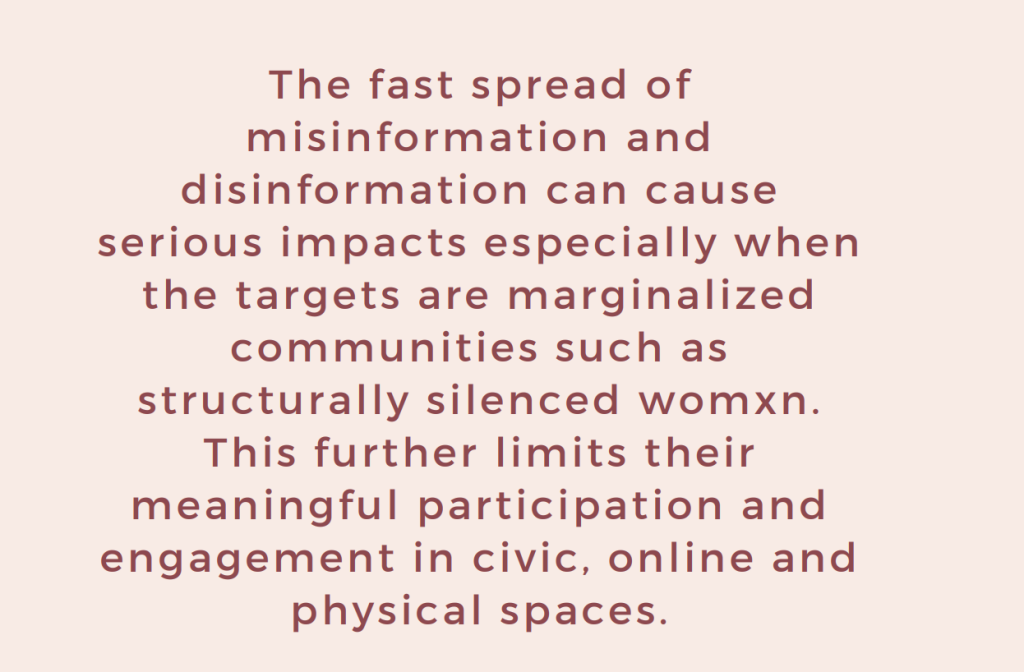
Extract from HerInternet handbook on understanding gendered disinformation
The dialogue called for non-discriminatory enforcement of current cyber laws and the need for diverse narratives to eliminate biased reporting, amongst other measures. In addition to the dialogue, Her Internet also conducted a campaign on its social media platforms on the key concepts of gendered disinformation, its manifestations and counter strategies. The project also compiled and disseminated a handbook on understanding gendered disinformation as a go-to guide for communities to understand and further engage beyond the campaign and dialogues.
According to a 2020 report by UN Women, women with multiple identities, such as sexual and ethnic minorities, are often targeted online through discrimination and hate speech, which often forces them to self-censor and withdraw from debates and online discussions. Similarly, the UN Special Rapporteur on violence against women, its causes and consequences, has stated that some groups of women, including women belonging to ethnic minorities, indigenous women, lesbian, bisexual and transgender women, and women with disabilities are particularly targeted by technology-facilitated violence.
Research by the Collaboration on International ICT Policy for East and Southern Africa (CIPESA) has found that cyberstalking, online sexual harassment, blackmail through non-consensual sharing of personal information, promotes and normalises violence against women and girls who use the internet in Uganda. Her Internet’s project builds on ADRF’s gender and sexual inclusivity portfolio. The ADRF has previously supported digital literacy and safety programmes for sexual minority refugees from the Democratic Republic of Congo, Eritrea, South Sudan and Sudan, living in Uganda.
CIPESA, DefyHateNow Support Fact-Checking in South Sudan
By Emmanuel Bida Thomas |
Disinformation thrives in conflict situations and in the world’s youngest nation, South Sudan, years of political uncertainty have cultivated a severe information disorder. In the face of another postponement of elections, community peace building including through debunking disinformation is critical to the country being able to stave off hate speech and incitement to violence.
According to the United Nations Development Programme (UNDP), word-of-mouth remains the most prevalent source of information for the masses in South Sudan. However, with increased mobile and internet penetration, an explosion of user-generated content has created an environment where rumours fueled on social media take hold offline and become difficult to counter.
With support from the Africa Digital Rights Fund (ADRF), an initiative of the Collaboration on International ICT Policy for East and Southern Africa (CIPESA), DefyHateNow has recently concluded a six-months knowledge and skills building project on countering disinformation and hate speech, complemented with digital rights and cybersecurity advocacy in South Sudan.
Leveraging the 211 Check and SafetyComm South Sudan platforms, monthly trainings on fact-checking, rights and safety online benefitted 98 content creators and civic actors.
“I loved it. We would like it to be regular; it should be a module in South Sudanese schools like universities and training for professionals,” said a trainee.
Select training beneficiaries were awarded fellowships through which they received more in-depth training and applied the acquired fact-checking and digital rights advocacy skills as part of placements within 211 Check and SafetyComm teams.
“The network that I have created as a result of this fellowship, both locally within the country and internationally, will help me to remain relevant and focused on fact-checking and digital rights.” – A fellow and Program Manager at Junub Youth Action Network (JYAN).
“The fellowship has empowered and equipped me a lot in fact-checking, both theoretically and practically, with hands-on tools. It has shaped and broadened my ability to confidently take on the tasks of fact-checking and research in the mis/disinformation paradigm.” – A fellow and student at the University of Juba.
In addition to the training and fellowships, four radio talk shows on Advance Youth Radio and two virtual meetups were hosted to raise wider awareness about disinformation and hate speech. Among the meetup guest speakers was an analyst from the National Communications Authority who presented on government efforts to establish a Computer Emergency Response Team (CERT). Discussions also explored the challenges related to the Computer Misuse Order 2021, with a representative from the telecom services provider MTN speaking about the company’s efforts to uphold data privacy and overcome fraud.
Moreover, together with Junub Open Space, a local National Nongovernmental Organisation (NNGO) in Juba, DefyHateNow hosted five editions of “Salaam Fi Bet” (Peace at Home), a community-centred discussion on trust circles for information verification. Up to 107 individuals (62% women) from five neighbourhoods in Juba attended the discussions.
DefyHateNow’s ADRF-supported project builds on initiatives spearheaded by UNDP to tackle Covid-19 related misinformation and the Sentinel Project, which addressed hate speech and misinformation at the peak of the civil war in the East African country. As the perpetrators, pathways and effects of false news and information manipulation online evolve, the need for continued education and empowerment remains preeminent. This project demonstrates that collaborative efforts in knowledge and skills building can contribute to equipping people with the tools and resources to keep communities safe.
Call for Applications: Fundraising Consultant at CIPESA
About CIPESA
The Collaboration on International ICT Policy for East and Southern Africa (CIPESA) is a leading centre for research and analysis that works to defend and expand the digital civic space to enable the protection and promotion of human rights and to enhance innovation and sustainable development. With a focus on disparate actors including government, the private sector, civil society, media, policy makers and multinational institutions, our work aims to engender a free, open and secure internet that advances rights, livelihoods, and democratic governance. CIPESA’s work responds to a shortage of information, research, resources and actors consistently working at the nexus of technology, human rights and society.
CIPESA continues to address the rising threats and challenges to Africa’s digital landscape and the enjoyment of digital rights on the continent. Some of these include the arbitrary arrest, detention and prosecution and intimidation of users of digital technologies, digital taxation, internet disruptions, disinformation, digital exclusion, surveillance, cyber attacks, poorly regulated digital identity programmes, digital authoritarianism, and the proliferation of regressive legislation that undermines the digital economy.
We have responded to these challenges through ambitious programming that includes,
- Knowledge and skills development;
- Generating research-based evidence;
- Policy engagement;
- Convenings;
- Movement building; and
- Strategic litigation.
CIPESA is now actively searching for an experienced fundraising consultant with a passion for non-profit work to help us develop a comprehensive fundraising strategy to support the implementation of our new strategic plan.
The consultant will, among others:
- Conduct a situation analysis of CIPESA’s funding over the last planning period.
- Develop SMART objectives for the strategy.
- Conduct research to identify and map potential donors and funding sources for the new planning period.
- Develop a comprehensive fundraising plan, including specific tactics, budgets, and timelines.
- Develop a monitoring and evaluation framework for the fundraising strategy.
- Support the execution of select fundraising activities.
- Train Board members and staff on best practices for effective donor engagement.
We expect the successful candidate to start the assignment by March 1, 2023 and complete by May 31, 2023.
If you are interested in working with a passionate team to make real impact in protecting and advancing the enjoyment of internet and digital rights in Africa, kindly send your detailed technical and financial proposal, CV and a cover letter explaining your qualifications and experience to [email protected] by February 15, 2023.

